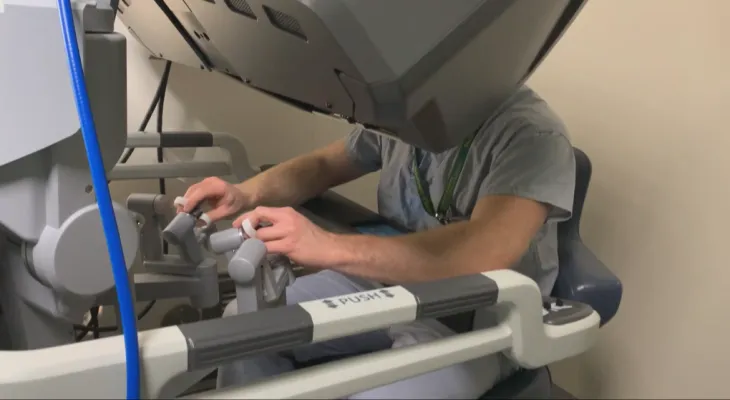Search here
Newspaper
Search here

Arab Canada News
News

Published: August 4, 2024
A surgeon in Alberta performed the first robot-assisted kidney transplant in Canada. For one family, this not only means more time together but also a match that lasts a lifetime.
After surviving COVID-19 two years ago, Carmen Neutchak has not fully recovered. She went to the hospital suffering from chest and leg pain and discovered that she was in complete kidney failure.
Neutchak said, "If I hadn't come in on Monday, June 20, I wouldn't be here on Wednesday."
She was suffering from a genetic condition - thrombotic microangiopathy (TMA).
Neutchak stated, "This is basically a form of anemia. It attacks blood cells and causes kidney damage."
They needed to find a living donor who matched not only her blood type but also her tissues and cells. As it turns out, she already knew her perfect donor - her husband.
Ernie Peters, Neutchak's husband and kidney donor, said, "There was a slim chance, but it worked. It was great to be able to do this for each other and not have to involve anyone else and make them sacrifice."
Neutchak added that Dr. Max Levin, a kidney transplant surgeon at the University of Alberta Hospital, reached out to her offering robotic surgery used in other operations but never tried before in kidney transplantation.
He said it offers quicker recovery, smaller incisions, and less risk of complications with the incision.
Levin explained, "By using robot-assisted surgery, you can do all this surgery inside the body using a camera without making a large opening externally to insert all the instruments."
Typically, the incision length for a transplant can range from 15 to 30 centimeters, while robotic surgery makes about five incisions, each about two and a half centimeters long.
Neutchak said, "You know, there are days I feel like I haven't had surgery except for the side effects of the anti-rejection medications."
It has been six weeks since her surgery, and she said she deserves it.
She said, "Thanks to my husband, I have a healthy kidney."
For his part, Levin said she is recovering faster than expected, adding that he looks forward to performing more operations to showcase the promise of this new technology.
Comments